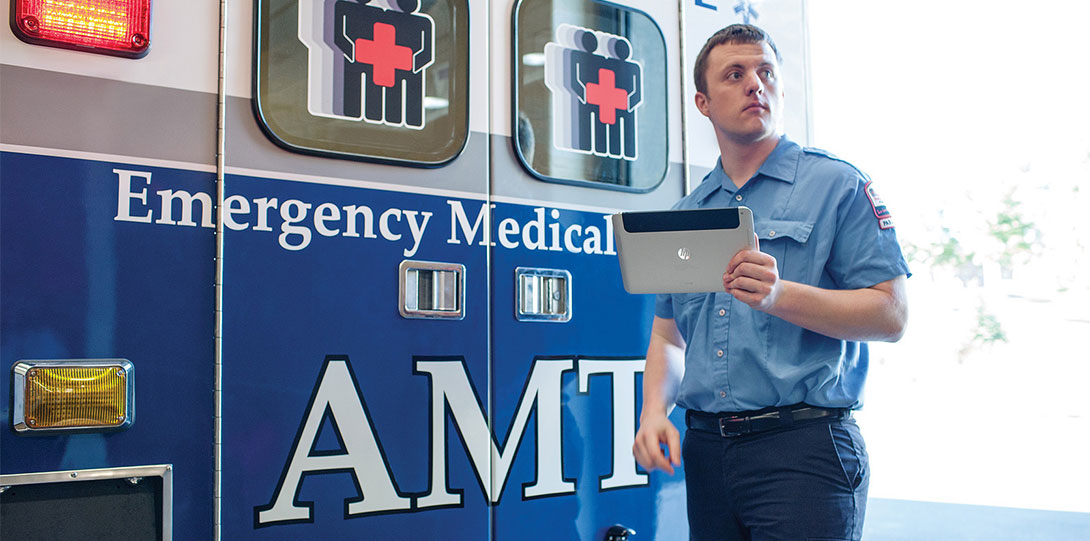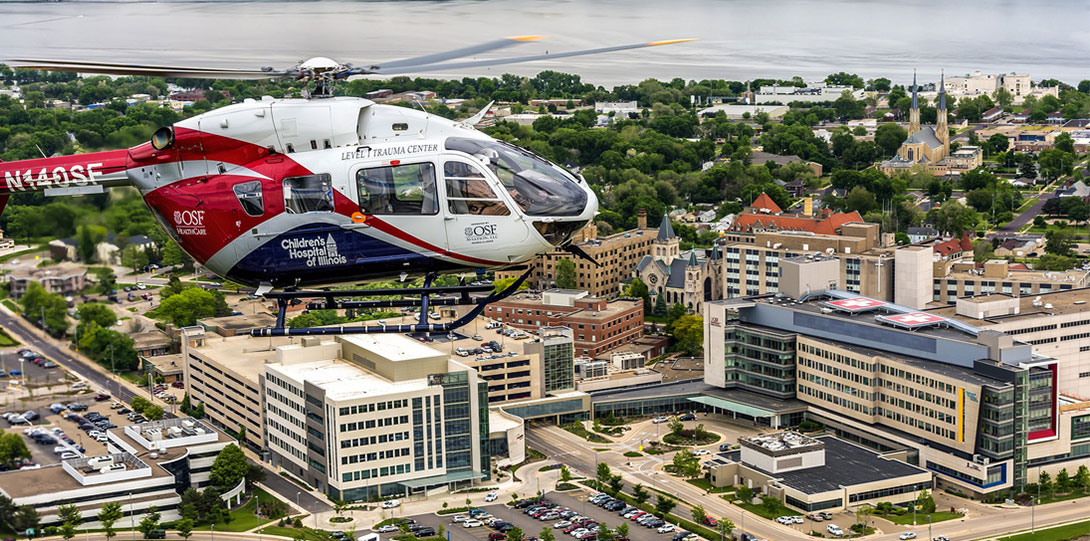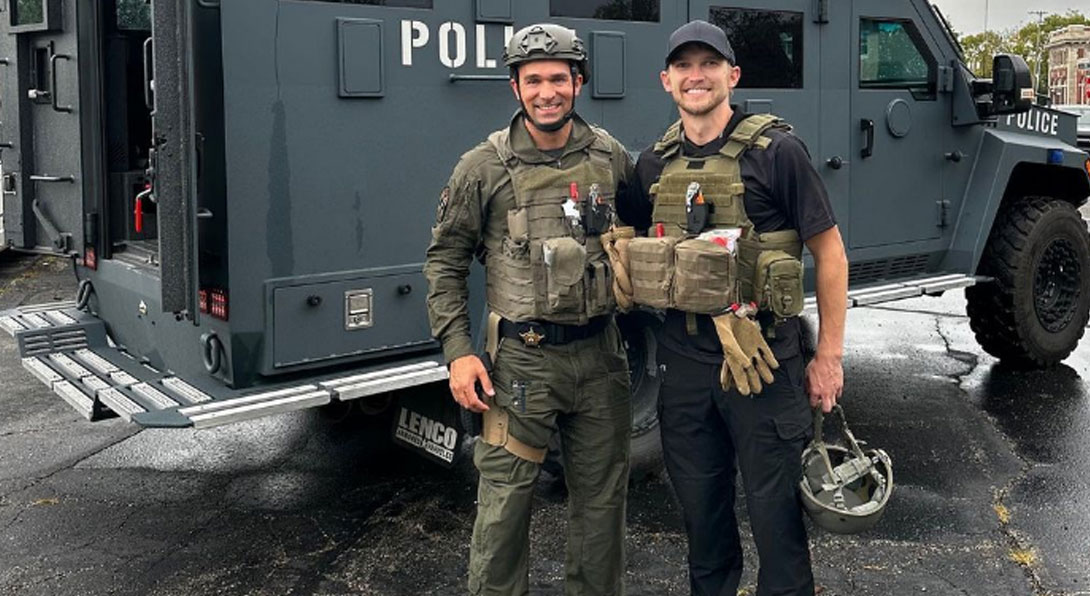Emergency Medicine Residency Curriculum
Introduction
All blocks are 4 weeks at OSF Saint Francis Medical Center in Peoria unless otherwise indicated.
Clinical Curriculum
Elements of PGY-1 curriculum
- Trauma
- Pediatric Emergency Medicine
- Neurology
- Anesthesia (2 weeks)
- Ultrasound (2 weeks)
- MICU
- Orthopedics
- EMS (2 weeks)
- OB (2 weeks)
- Pediatric floors
- ED
Elements of PGY-2 curriculum
- Community ED at OSF Saint James Medical Center in Pontiac, IL (2 weeks)
- Cardiology
- Flight EMS
- MICU
- PICU
- Trauma
- ED
- Elective
Elements of PGY-3 curriculum
- Community ED at OSF Saint Mary’s Medical Center in Galesburg IL (2 weeks)
- MICU
- Advanced EM Leadership (integrated month with exposure to EM administration,
quality, and education) - ED
- Elective
Tracks
For more info about any of the following tracks, send an email to Dr. Charlie Heinzmann at cheinz3@uic.edu.
Tracks 01

EMS
You will spend time with local fire departments and EMS agencies during a two-week EMS rotation during your intern year, participating as a part of the responding team on scene, stabilizing and transporting patients to Peoria area hospitals. You will also spend time with our local dispatch center, Life Flight, and have the opportunity to respond to scenes with our EMS Physician Response Vehicle.
Tracks 02

Life Flight
OSF HealthCare boasts one of the busiest aeromedical transportation systems in the region with over 2,000 transports per year. Our residents attend an annual Ground School to learn the basics of aeromedical transport and have the opportunity to fly during their EMS rotation as interns and can moonlight on the helicopter beginning PGY-2 year after a two-week Life Flight rotation. As a flight physician, you will respond with Life Flight to scene calls as well as assist with transferring critically ill patients during their interfacility transport.
Tracks 03

Tactical and Law Enforcement Medicine
Tactical and law enforcement medicine is a growing subspecialty of emergency medicine as emergency physicians and other rescue personnel are increasingly sought out to provide medical direction for law enforcement agencies and to serve on tactical law enforcement teams.
As a resident, you will have the opportunity to take this elective, which includes firearm safety, weapons handling, criminal and terrorist threat recognition, Tactical Emergency Casualty Care (TECC), preventive medicine for the tactical athlete, medical preplanning, and medical threat assessments. Additionally, we are fortunate to have many different types of law enforcement agencies, with a wide range of capabilities, in our area which allows us to have first-hand experience on ride alongs, SWAT training, dignitary protection, etc. Offering tactical medicine during residency training provides much-needed knowledge and skill sets that allow emergency physicians to perform their work more safely, provide better patient care, and keep their communities safe.